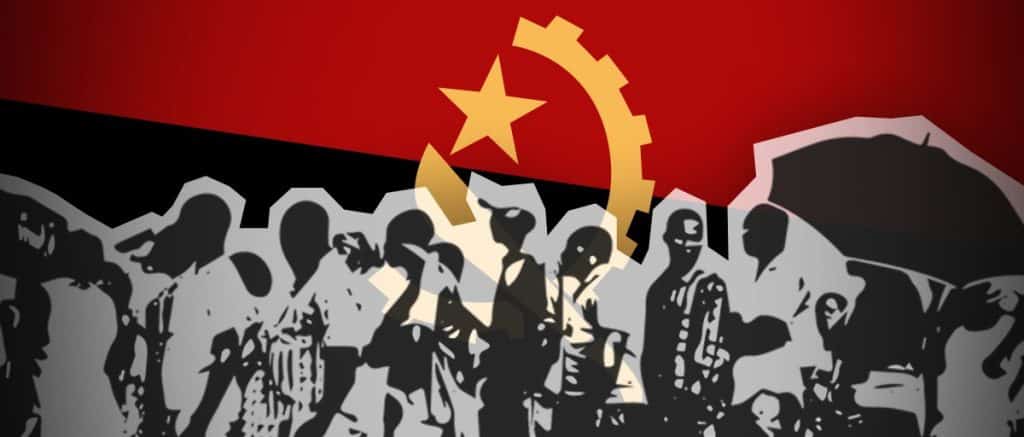
Angola’s fifth multiparty polls on 24 August are expected to be highly contested, with a stronger opposition and a weakened ruling party. But the country’s uneven political playing field and electoral manipulations threaten free and fair elections.
The ruling People’s Movement for the Liberation of Angola (MPLA) and its candidate, current President João Lourenço, are up against the solid informal United Patriotic Front coalition. The grouping is led by a renewed National Union for the Total Independence of Angola (UNITA), with its popular presidential candidate, Adalberto Costa Junior.
Other coalition members include two influential opposition groups leaders. One is Abel Chivukuvuku, a former senior UNITA member, founder of Convergência Ampla e Salvação de Angola – Coligação Eleitoral (CASA-CE) and leader of Partido para o Renascimento Angolano – Juntos por Angola. The other is Justino Pinto de Andrade from the Democratic Bloc Party. Some MPLA dissidents and civil society members have also joined the coalition. The other contenders are smaller and together usually garner less than 10% of the vote.
The first multiparty elections held in Angola in 1992 were a very close contest. The first round didn’t deliver a winner, as no candidate obtained the 50% +1 votes needed to be elected head of state. This set the scene for Angola’s bipartisan democracy. Still, it was the 10-year civil war that followed that shaped the country’s political configuration, with the dominant MPLA controlling the state and society.
Lourenço’s first term has been as authoritarian and highly criticised as that of his predecessor
The MPLA consolidated its power and amended the country’s constitution in 2010, introducing changes considered undemocratic. For example, using one ballot paper for both the presidential candidate and the lawmakers. Previously, voters were given two separate ballot papers and often skipped the presidential one completely. Even MPLA members sometimes contested the presidential candidate. Other amendments included introducing greater control of state institutions and increasing the president’s powers.
Over 50 years, the MPLA has stacked the political odds in its favour, using the state’s human and financial resources, state-owned media, electoral bodies and electoral courts to stay in power. For 38 years, from 1979-2017, former president José Eduardo dos Santos kept himself in power, benefiting from the uneven political field and manipulating elections.
Lourenço was elected in 2017 and promised more transparency, less corruption and inclusive governance. But as his first term ends, his time in office has been as authoritarian and highly criticised as that of his predecessor.
Since 2016, Angola has faced an economic recession caused partly by the drop in the international market price of crude oil, the country’s main export commodity. This devalued the currency against the US dollar and euro, the main exchange currencies, causing the cost of living to soar in urban centres.
Civil society is strengthening itself to observe the polls and carry out parallel vote tabulation
Severe drought in Angola’s southern provinces is affecting more than two million people, causing starvation and the death of livestock. Extreme poverty has increased by 9% in the past three years and now affects 44% of Angolans.
The government’s management of these problems hasn’t been acceptable to citizens and civil society organisations, leading to popular demonstrations in major cities against the MPLA and Lourenço. Police reacted violently to the protests, arresting several people accused of organising subversion.
Ahead of the 24 August election, civil society is strengthening itself to observe the polls and carry out parallel vote tabulation. But a National Electoral Commission set a barrier of just 2 000 observers nationwide to monitor more than 26 000 polling stations.
The Southern African Development Community (SADC) Principles and Guidelines Governing Democratic Elections aim to promote regular free and fair, transparent, credible and peaceful polls to institutionalise the legitimate authority of a representative government. The guidelines also promote electoral justice and best practices in election management and mitigating election-related conflict.
SADC’s election observers have generally issued recommendations with no enforcement mechanisms or follow-up
As a SADC member state, Angola must observe these principles and guidelines and invite the SADC Electoral Observation Mission (SEOM) to monitor the elections. But the SEOM has generally issued recommendations with no enforcement mechanisms for implementation and no proper follow-up.
Key suggestions by the SEOM deployed to supervise the 2017 Angolan elections are still to be implemented. These include allowing an independent electoral commission to organise voter registration rather than the Ministry of Territory Administration, which is a government agency.
Given that Angola’s political and electoral system favours the MPLA, two scenarios are possible for next week’s polls. The first, and most likely, is that the MPLA wins by manipulating electoral and justice institutions and benefiting from partiality. This may cause a popular uprising that could lead to post-election violence.
The second less likely scenario is a UNITA win, which could lead to some conservative groups in the MPLA refusing to transfer power. Mediation would be needed to avoid post-election clashes.
SADC needs to monitor the polls closely and through its observer mission, diligently apply and follow up on its principles and guidelines. History has shown that left to the ruling MPLA, democratic progress that allows free, fair and credible polls in Angola is far from assured.




